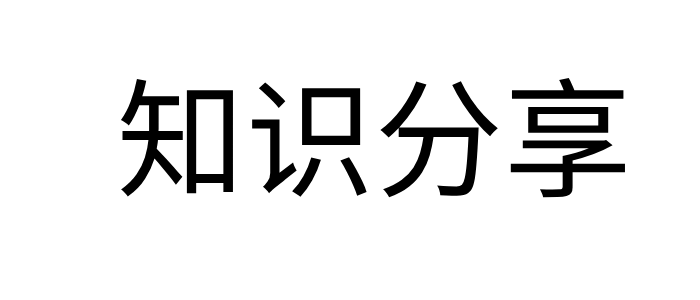
“三生三世,十里桃花”
一次又一次的生命,遍地开花

累世情缘,谁捡起,谁抛下,谁忘前尘,谁总牵挂。
忆当时年华,谁点相思,谁种桃花。
这命中注定的永远和一天的爱―
谁把它捡起来了?谁把它扔掉了?
谁忘记了这一切?谁渴望它留下来?
那些逝去的迷宫般的日子―
是谁让对方叹息和憔悴?
谁在桃园里养花?
在这段译文中,没有复杂的词句,但在奠定旋律方面显然是经过深思熟虑的,技巧性的。迷宫式(迷宫似的,曲折的)特别好用。起初,押韵为后面的松和神扫清了道路。同时也意味着爱情的纠葛,一举两得。

你父君是我的心,我的肝,我的宝贝甜蜜饯儿,我又怎会不要他。
你父亲殿下是我的心,我的灵魂,我的宝贝,我的甜心。我怎么会不想要他呢?
读到这句话总能让你想起莎士比亚戏剧中那些毫不掩饰的爱的表达,自动弥补了罗密欧与朱丽叶在阳台上的私会。

这正是桃花盛开的季节,十里桃林,十里桃花,漫山遍野的灼灼芳华。
这是桃树盛开的季节。越过山丘,越过山谷,大片大片的桃树展示着大片大片的桃花,灿烂而甜蜜。
为了丰富画面感,这句话是明显的意译。“Over hills,over vales”的直译应该是满山满谷,丰富了“十里”的形象。“游行”的意思是“展示和炫耀”。这里用作动词,可以想象桃花在枝头炫耀的画面。“燃”是“亮”的意思,所以用“光芒四射”。“甜”就是“香”的意思。

三月春盛,烟烟霞霞,灼灼桃花虽有十里,但一朵放在心上,足矣。
三月春意盎然,万丈桃花开,如霞雾绯红。不管有多少朵花,只要有一朵,珍藏在心中,就足够了。
“彩霞绯云”用在烟霞中,意为彩霞绯红,见字如见。第二句“are”与“heart”押韵,中间有一个断句,成为一首精致的三行诗,与原句结构相呼应。

桃花灼灼,枝叶蓁蓁,妖娆伤眼。
The peach blossoms are radiant, the leaves luxuriant, their allure stunning.
“Allure”:魅力,诱惑力。可以理解成魅惑吧,也算符合“妖娆”的内涵。原文中“伤眼”细读其实并非是个贬义形容,美得过度总是震慑人心,用 “stunning” 比较合理。

我自是百般推脱,他自是千般盛情。
I, of course, did my best to excuse myself, while he, naturally, pressed on with all graciousness and courtesy.
这句也很妙,原文是两句,译者断成了八个部分,营造了节奏感,“naturally”也跟“courtesy”押韵。

风月里的计谋不算计谋,情趣罢了;风月里的情趣不算情趣,计谋罢了。
In affairs of the heart, scheming is not at all scheming, only part of the play; while playfulness is never just playfulness, but part of the scheme.
小编才学疏浅,说不出来所以然,但就觉得把风月翻译成 “affairs of the heart” 简单又恰当。

四海八荒,总是会有一个人,一定会有这么一个人,他会把你的名字叫得婉转温柔,荡气回肠。
In the vast universe (Four Seas and Eight Deserts), there will―there must―be someone who, when he calls your name, gives it such delight, such tenderness, such soul-stirring pathos.
“Pathos” ,形容悲怆、哀婉,凄楚,契合荡气回肠的意境,用得好高级。换作我,只能想到 sorrow 或 sentiment 之类吧,哈哈哈。

光晕一层一层,打出斑驳的印记。桃林十里,娇烂漫红,千朵浓芳,一枝枝缀乱云霞。那烟霞底下立着的玄衣青年,眉如泼墨,鬓若刀裁。
Halos of light rippled and splashed. In the acres of peach trees, pink blossoms bloomed, breathing out sweet perfume. Beneath the rosy clouds and scented mists stood the young man, all dressed in black, his eyebrows as dark as if painted with ink, the hair above his temples as sharply outlined as if cut with a knife.
“眉如泼墨,鬓若刀裁”出自《红楼梦》,原为对宝玉容貌的描述。此处沿用杨宪益、戴乃迭译本中的译法。

方才夜华(角色名)行色匆匆,淡薄之间隐含亲切,疏离之间暗藏婉约,如此神态,以我十多万年所见的风月经验,定是会佳人去了。
Ye Hua went off in a hurry just now. He looked nonchalant and distant, but there was a heartiness to that nonchalance and a coyness to that distance. I know, from my observations of romantic affairs―accumulated, I may add, over a hundred thousand years―that with that air and look, he must have been on his way to meet a fair lady.
铛铛铛,红宝书时间,GRE 词汇背起来。“nonchalant”:漫不经心的,漠不关心的,又指恬然的。形容“淡薄”感觉恰如其分。“coyness”:怕羞、羞涩。婉约本身的意思就是委婉含蓄,有羞涩之意。
